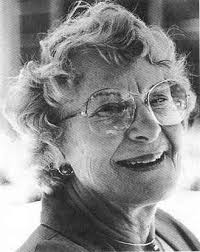Virginia Satir

Virginia Satir (26 June 1916 – 10 September 1988) is known for her approach to family therapy and her systemic work such as family reconstruction. She is widely regarded as the “Mother of Family Therapy”. Her most well-known books are Conjoint Family Therapy, 1964, Peoplemaking, 1972, and The New Peoplemaking, 1988. She is also known for creating the Virginia Satir Change Process Model, a psychological model developed through clinical studies. Change management and organizational gurus of the 1990s and 2000s embraced this model to define how change impacts organizations. After graduating social work school, Satir began working in private practice. She met with her first family that she worked in 1951, and by 1955 was working with Illinois Psychiatric Institute, encouraging other therapists to focus on families instead of individual patients. By the end of the decade she had moved to California, where she cofounded the Mental Research Institute (MRI) in Palo Alto, California. MRI received a grant from NIMH in 1962, allowing them to begin the first formal family therapy training program ever offered; Satir was hired as its Training Director. One of Satir’s most novel ideas at the time, was that the “presenting issue” or “surface problem” itself was seldom the real problem; rather, how people coped with the issue created the problem.” Satir also offered insights into the particular problems that low self-esteem could cause in relationships. Honors and Awards Received 1976 Awarded Gold Medal of “Outstanding and Consistent Service to Mankind” by the University of Chicago. 1978 Awarded honorary doctorate in Social Sciences from the University of Wisconsin–Madison. 1982 Selected by the West German Government as one of the twelve most influential leaders in the world today. 1984 Named Honorary Founding Chair of PAIRS Foundation 1985 Time magazine quotes a colleague, “She can fill any auditorium in the country”, after her stellar contribution to the Evolution of Psychotherapy Conference in Phoenix, Arizona. 1985 Selected by the prestigious National Academy of Practice as one of two members to advise on health concerns to the Congress of the United States. 1986 Selected as member of the International Council of Elders, a society developed by the recipients of the Nobel Peace Prize. 1987 Named Honorary Member of the Czechoslovakian Medical Society. She was honored in the California Social Work Hall of Distinction. In two national surveys of Psychiatrists, Psychologists, Social Workers, and Marriage and Family Therapists, she was voted the most influential therapist.